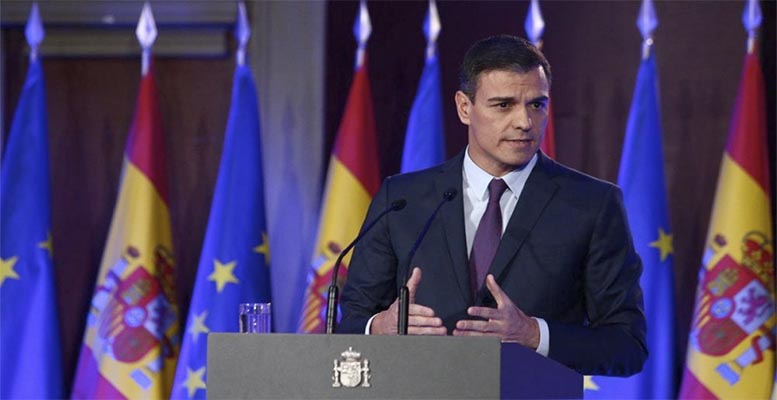A.A. | On the rights and freedoms of all Spaniards, on whether or not they can leave their homes, up until what time, with how many people… On all of this, let the Supreme Court decide. On the 12 prisoners of the ‘procés’ who from prison support the Government, on whether they enter or leave, or how and when… The Supreme Court can say mass, and the Government, in other words Sánchez, will decide.
This is, roughly speaking, the approach offered today to your average Spaniard on the 3pm news (or the 9pm news, because it says the same thing, or El País, or…). And, of course, neither Sánchez nor his group of acolytes are lacking in arguments to justify it: that revenge is not a constitutional value and concord is, that we must turn the page… Ignoring – how important can it be – that without the parliamentary support for the prisoners he intends to pardon, Sánchez would not have reached the Government, nor could he remain there. Will one stop doing what one should just because, coincidentally, it benefits himslef? And isn’t what benefits him what he should do?
What is the first and most important thing in order to be a good Senator? Well, the first and most important thing is undoubtedly… to be a Senator. And can’t Sánchez end up being a great Prime Minister? Yes, undoubtedly, he can, provided, of course, that he remains so for long enough… Even parallel lines meet at infinity.
Aware of this old proverb, the Spanish Prime Minister – author of a truly premonitory book entitled “Manual de resistencia” – is acting accordingly. He is sticking to the script of staying on as best he can, against all odds, if not one way then the other. In the post of head of Government, which he took up – on 17 June, 1,111 days ago – via a motion of censure. This was supported by all those who at the time wanted to oust Mariano Rajoy from Government: the Catalan independentists, the Basque independentists and nationalists, the communists of Unidas Podemos… When the PSOE had only 90 MPs, the worst result in its century-old history, what problem can it have now, with 120 MPs, even though the majority in Parliament requires 176?
Incidentally, it is worth remembering that it was the PSOE’s own executive that kicked Pedro Sánchez out of the party’s general secretariat when it became known he intended to form a government like the one he now leads, supported by parties like the ones that now support him. In other words, you don’t have to be right-wing, or even centrist, to suspect that the bill for a government like this is very, very expensive.
The list of absurdities that Spaniards have had to endure in these 1,111 days of the Sánchez government is difficult to summarise, because it covers all areas. What has been accredited is his management capacity: inversely proportional to his capacity for propaganda. It is not so much a question of doing as of being seen to be doing. So, to sum up, any ordinary Spaniard today knows what the Spain of 2050 will be like – there is a plan to make it green, digital, feminist, progressive, in short, good… – but he has no idea – after three years of PSOE government – what the labour counter-reform he promised – on 17 June he will have been in government for 1,111 days – is going to be like. Do not rule out the possibility that the Supreme Court will end up having to do it. The government has enough to do with appointing, by hand, of course, more than a thousand advisors, the chairman of Indra, etc… But isn’t it maybe better for Spain to be presided over by a handsome, English-speaking, progressive guy than one as stale and conservative as Rajoy?





